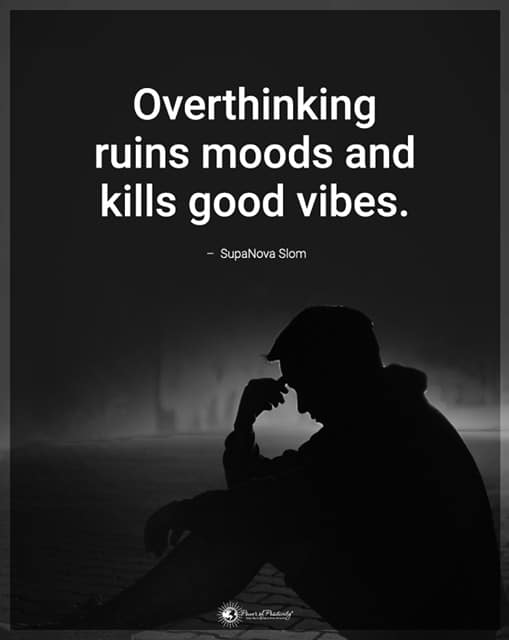Life is full of choices that have to be made. It’s not always easy to weigh options and make a definitive decision, but it has to be done. For the average person, this is already a tough job. But for those with anxiety, it can feel almost impossible to make good decisions.
If you have anxiety, you probably have found yourself struggling to make choices in the past. You may wonder what’s wrong with you or why this is happening. Well, your anxiety is likely to blame! But how? Here are five ways anxiety impacts your ability to make good decisions.
1. It Makes You Too Anxious To Ask Questions That Help You Make Good Decisions
One of the most inconvenient things about anxiety is that it fuels itself. The existence of fear helps it to self-perpetuate. This is because, for the most part, tensions can be reduced through open communication. However, anxiety stops you from asking questions, as you fear judgment, threats, and other problems.
When it comes to decision-making, you want to collect all the information you can before making a choice. With anxiety, you can’t do that, especially if you need information that can only be obtained by asking others for it. On the surface, this doesn’t seem like the biggest deal, as the Internet allows quick lookups of opinions, and sometimes, other people’s words don’t hold that much weight anyway. But this is especially detrimental when it comes to subjects like:- Your finances
- Healthy decisions
- Your education
- Finer aspects of laws and legality
- Personal relationships
- Familial issues
There are some things you need to be able to ask directly to a professional who works with you specifically – such as your doctor, therapist, financial advisor, or teacher. These individuals have more insight into your specific needs and their specific requirements, and you can’t get that information elsewhere.
And, of course, when it comes to personal things, you can’t simply google details of your interpersonal relationships. And a lot of the time, people won’t know that something is concerning you until you voice that concern, and they won’t know you need reassurance until you ask for it.
Anxiety prevents you from asking questions that need to because you’re so focused on what could go wrong. And, ironically, seeing all the potential problems with a situation means that you need, more than ever, to be able to ask questions. It’s a dangerous cycle to be caught in.
2. It Paralyzes You In Fight-or-Flight
You’ve likely heard of “fight-or-flight” as a concept several times in your life. Many people think that this reaction only comes into play in situations of extreme danger. This is not true. The mind and body can enter this state whenever a threat, whether imagined or accurate, and anxiety makes many things into a perceived threat!
Anxiety sends a part of the brain known as the limbic system into overdrive. This system is used for the brain’s emotional responses and deriving motivation and specific aspects of memory. Meanwhile, there’s another part of the brain that anxiety ignores – and that’s the prefrontal cortex. It is here that the brain makes all of its chief decision-making, and it’s often referred to as the “thinking brain.”
The limbic system and prefrontal cortex often have to fight for our brain’s attention, in a way. You’re likely only ever paying attention to one of them at a time, or at least one influences you more than the other at a time. When you’re anxious, it’s the limbic system that wins, latching only to the amygdala in the limbic system and throwing your prefrontal cortex out for a loop.
The limbic system rushes through all sorts of different fears and anxieties when you enter a fight-or-flight mode driven by anxiety. You start spiraling, and one simple fear turns into a catastrophic worst-case-scenario visualizer. It’s terrible for your ability to make decisions, especially since the imagined threats your limbic system is screaming about aren’t realistic at all. This can drive you to make irrational decisions or become too paralyzed to make any decision at all.
3. It Causes Overthinking and Underthinking
One of the strangest parts of anxiety is how it can be so contradictory in what it does to you, making you go to both extremes of a spectrum at once. It’s like anxiety tries to make you get the worst of both worlds, which is incredibly annoying when it comes to making decisions.
Behavioral patterns caused by anxiety can seem like total opposites when decision-making is involved. The act of making the right choice means you have to think about it to some degree, but anxiety makes that difficult from all aspects. Here’s how:
· It Makes You Overthink
Minor, small decisions can seem vast and terrifying when you have anxiety. Every single thing seems frightening and like it holds potentially threatening repercussions. This makes you spend way too long on inconsequential decisions.
· It Makes You Underthink
Major, big decisions can be way too much for you to handle when you have anxiety. The act of thinking about needing to make these decisions makes you desperate to end it all quickly, as each thought makes you more and more worried. So instead of giving the choice any care, you pounce on something that seems workable the second you get to. You’ll pick one of the first ideas you happen upon, even if it’s an unreasonable decision fueled by anxiety.
· It Makes You Unable To Think
When you overthink, underthink, and get overwhelmed by decisions thanks to anxiety, it can make it impossible for you to think at all. With all the confusing feelings jumbled up into one, you may decide never to decide at all, avoiding the source of your contradictory anxieties.
4. It Distracts You From Good Decisions By Making You Feel Ill
When you’re trying to make decisions, you usually want to be entirely focused on your options. People who are feeling unwell tend to make less wise decisions when choices are presented to them because they can’t devote their full attention to the subject at hand.
Anxiety messes with your chances of choosing things well because it often manifests physically. Though many people may ridicule this concept by saying it’s “all in your head,” for example, the fact remains that the brain and nervous system impact the entire body. It’s “all in your head” because it’s happening in your brain, but that doesn’t make it any less physical, valid, or stoppable.
Here are some ways that anxiety can manifest in physical symptoms, some of which can even last long-term with lasting effects:
· On The Cardiovascular System
Anxiety sends your heart into overdrive. Your heart rate accelerates and palpitates, and in extreme situations, that might even come with significant chest pain. According to research, this also comes with a heightened risk of high blood pressure, heart conditions, and other coronary events.
· On The Digestive System
Ever noticed that your stomach starts to hurt when you get anxious? These aches and pains can cause many discomforts when you’re trying to make decisions, fueled by the stress of it all. Studies say anxiety can even cause irritable bowel syndrome!
· On The Respiratory System
Anyone who’s ever had an anxiety attack will be familiar with the shallow, quickened breathing that anxiety can entail. For those with conditions like asthma, it’s even harder to deal with. Trying to make choices when you’re short of breath is tough, and if you have a respiratory disease, anxiety may put you at risk for several serious complications, say studies.
· On The Immune System
The stress responses caused by anxiety cause many hormones and chemicals to leak into your bodily systems. These chemicals seek to focus on getting you through the current problem, helping you survive. With long-term anxiety, though, this means that the attention taken away from your immune system makes you at risk of getting ill more easily. If you’re feeling sick while trying to make choices, it could be that all that anxiety is coming back to bite you and take your positive thinking away even further!
· Other Aches and Pains
Your central nervous system isn’t just responsible for handling stress and anxiety signals – it’s also what conveys pain and discomfort to your brain. This means that sometimes, just being anxious can cause random physical pain, such as muscle tension, general soreness, and headaches. It’s hard to make decisions well when dealing with pain in random parts of your body!
5. It Disengages Parts Of The Brain
Did you know that anxiety is so powerful that it can completely and utterly disengage parts of your brain? We’ve talked about how the limbic system tends to win when you enter fight-or-flight, but even the presence of anxiety without the fight-or-flight response is enough to send an essential part of your brain shutting down.
A study found that when anxiety exists in someone’s mind, it plays a significant role in decision-making, often choosing the least positive options. This research, published in the Journal of Neuroscience, discusses how the prefrontal cortex can be completely disengaged by anxiety. As previously mentioned, this part of the brain is necessary for decision-making.
The study found the following facts about making good decisions:
- You are more likely to make mistakes in decision-making when you face distractions and hurdles if you have anxiety.
- Anxiety prevents the brain from ignoring potential environmental or psychological distractions.
- When you’re anxious, a neuron group in the prefrontal cortex becomes numbed, unable to help you make decisions.
- Instead of over-engaging unproductive brain circuits, anxiety may have a higher chance of simply disengaging productive ones.
It’s easy to see how losing access to a fundamental part of your brain can further fuel anxiety. It’s an exciting way of better understanding what anxiety can do to you and how, on a neurological level, it can stop you from making good decisions.
Final Thoughts On Some Ways Anxiety Impacts Your Ability To Make Good Decisions
Anxiety is difficult to live with, and the fact that it can impair your decision-making ability makes it all feel even worse. If you struggle a lot with making choices, know that your anxiety may be the root of it all. You can and should speak to a doctor or relevant mental healthcare professional to find ways to manage this crippling anxiety.

















 Community
Community

